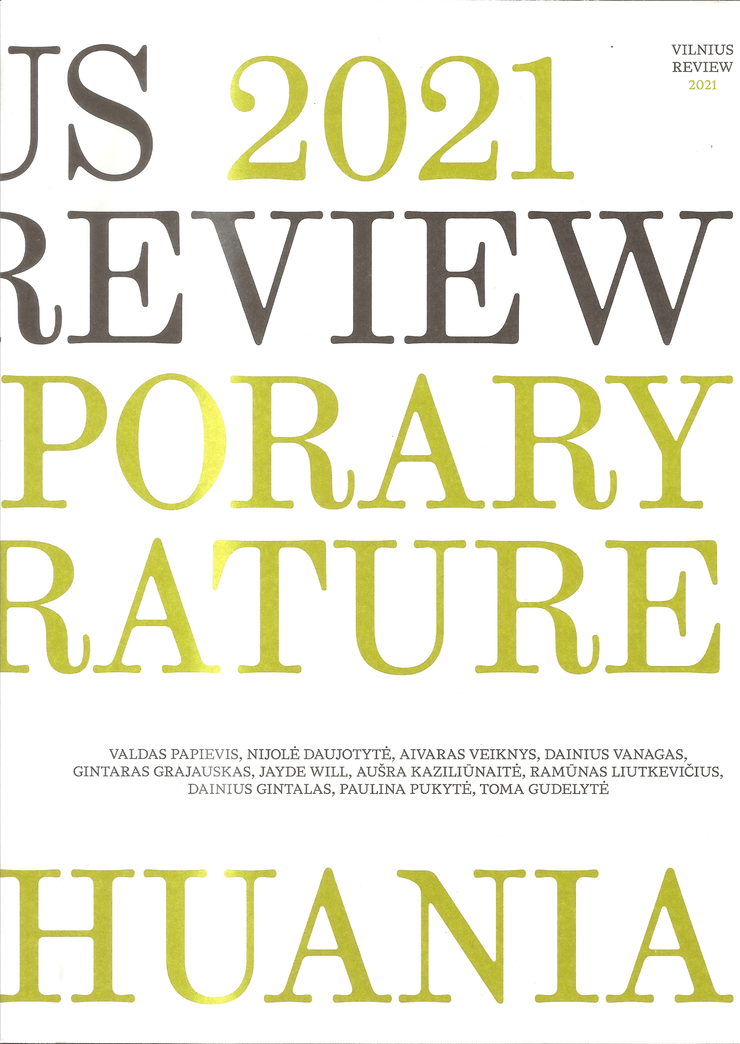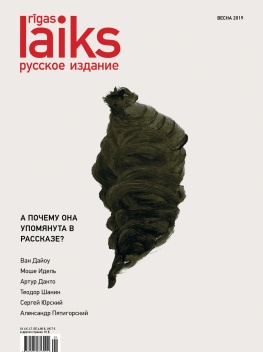Editor’s word from the new issue:
„Greetings to all loyal and diligent readers of Vilnius Review !
This was a tough year, but literature – and poetry in particular – thrive in such times. So let us see whether it is true that writers find inspiration in turbulent times.
What do we have in store for you this year? Lithuanian prose, perhaps having finally caught up with Western trends or merely informed by the prevailing spirit of the times, has stepped into the anti-utopian realm.
If you like to read your anthologies from the beginning, you’ll find an excerpt from the short novel Ėko by Valdas Papievis. It is set in an alternative Paris, eerily empty and decrepit, somewhat apocalyptic and swallowed by the forces of nature. It is no surprise that the events referenced in the novel – including the November 2015 Paris attacks, the Notre-Dame de Paris fire, and the first spring of the pandemic – change our perceptions of the city, so much that even the publishers of Ėko have described Valdas Papievis, who has been a resident of Paris for many years, as “the prophet of emptiness.”
According to literary critic Jūratė Čerškutė, “it is a work contemplating the finiteness of human beings and the world, the state of contemporary humankind in a pastel apocalypse, in a melancholy light. At its center is destruction, sifting everyone and everything through the sieve of time. Papievis broaches ‘fashionable’ themes – the refugee crisis, the climate crisis, nature’s exhaustion with humans, humans’ exhaustion from chasing after success, the anxiety suffusing everything.”
A similar theme was used by Dainius Vanagas in his debut novel Oderis. It is an anti-utopian story of a city that becomes the grounds for a social experiment, a novel woven from three threads: one details the interrogation of the mayor of the city of Oderis by the secret service, detailing the origins of the radical changes that have been implemented in the city; the second thread consists of philosophical and macabre essays by local Oderis writer Truman More, which add a certain level of depth to the book; the third thread is the story of how Alan, a resident of Oderis, struggles to survive in the city and his journey from a respected member of society to its very rock bottom.
Vanagas’s anti-utopia is strikingly modern, an observation shared by literary critic Ramūnas Čičelis: “Although Oderis is set in the second half of the twenty-first century, it is easy to guess that Vanagas has created a narrative that speaks of the present: the novel depicts the future of humanity for which almost all the conditions are already in place in the real, nonfictional world. Its whole logic is based on a simple decision by the authorities of a European city, Oderis, to the effect that only employed people can live there.”
We cannot call writer, essayist, and National Arts Prize laureate Rolandas Rastauskas a debut writer, yet this year he published his first prose book Venice Live: a strange, rich book full of humor and sarcasm, its characters media personalities and political figures traveling across Europe. It is a gently delirious book, a match for the times that we live in, a mirror that gives us a look at our pandemic post-reality.
If this year’s fiction was concerned with providing descriptions of a crumbling reality, while poetry, on the other hand, affirmed life rather than denied it. The poetry featured in this anthology is, as always, very diverse: from works by Dainius Gintalas, so full of the joy of life that it spills out into a stream of consciousness revisiting the memories of childhood and youth, to the verses of Ramūnas Liutkevičius, which are painful, confessional, fragmentary, and at times evolve into a diaristic style.
The poetic cycle Mammoth Hunting by Aivaras Veiknys is an especially refreshing addition to the anthology. Veiknys’s poetry is intense, written in rhyme. It is a distinctive archaeology of memory that delves both into the depths of personal biography and the foundations of archetypes and myths.
Nijolė Daujotytė‘s subtle, minimal poems, likely additions to the theme shared by Veiknys, are like watercolors painted in time and memory, their undertones and allusions speaking of ageless things.
This anthology also features poetry by Aušra Kaziliūnaitė, her poems paradoxical in nature: at first glance clear and transparent like glass, but nevertheless a glass that hides phantasmagorical and macabre things behind it. To see through this glass is to see into an abyss. Kaziliūnaitė is a skilled observer of the oddity of our daily habits and rituals, which become easier to see once you know where to look.
This year’s anthology continues our essay cycle “Reflections on Belonging,” where Lithuanian writers and writers of Lithuanian origin write about literature, translation, language, gender, identity, and belonging. Only this year, we have decided to expand the range of our authors to include translators, seeing as it is through their help that literary works can speak in multiple languages. Toma Gudelytė, a translator from Italian, writes about her work and the ideal translator’s library; Jayde Will, a translator of Lithuanian and Latvian literature to English, describes the daily life of a translator and the city of Vilnius.
As in our earlier issue, we feature a range of interviews by literary scholar and writer Saulius Vasiliauskas with Valdas Papievis, poet and playwright Gintaras Grajauskas, and writer and artist Paulina Pukytė.
May your reading be pleasant and without haste!
Marius Burokas
Editor-in-Chief
Vilnius Review”






